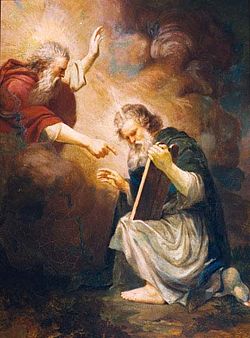Portal:Religion
The Religion Portal
Religion is a range of social-cultural systems, including designated behaviors and practices, morals, beliefs, worldviews, texts, sanctified places, prophecies, ethics, or organizations, that generally relate humanity to supernatural, transcendental, and spiritual elements—although there is no scholarly consensus over what precisely constitutes a religion. Different religions may or may not contain various elements ranging from the divine, sacredness, faith, and a supernatural being or beings. (Full article...)
 Vital article
Vital article
Laozi (/ˈlaʊdzə/), also romanized as Lao Tzu among other ways, was a semi-legendary Chinese philosopher and author of the Tao Te Ching (Laozi), one of the foundational texts of Taoism alongside the Zhuangzi. The name, literally meaning 'Old Master', was likely intended to portray an archaic anonymity that could converse with Confucianism. Modern scholarship generally regards his biographical details as later inventions, and his opus a collaboration. Traditional accounts addend him as Li Er, born in the 6th-century BC state of Chu during China's Spring and Autumn period (c. 770 – c. 481 BC). Serving as the royal archivist for the Zhou court at Wangcheng (modern Luoyang), he met and impressed Confucius (c. 551 – c. 479 BC) on one occasion, composing the Tao Te Ching in a single session before retiring into the western wilderness. (Full article...)
 Did you know (auto-generated)
Did you know (auto-generated)
- ... that the nonconformist minister Ichabod Chauncey was banished from England under the Religion Act 1592 and spent two years in exile in Holland where he published a defence of his actions?
- ... that Musa va 'Uj depicts figures from all three Abrahamic religions?
- ... that the author of the comic book Timeless Voyage was the leader of a UFO religion?
- ... that a religious community is a group of people who practice the same religion, but do not have to live together?
- ... that the capital of South Ossetia once had more Jews than Ossetians?
- ... that religious studies scholar C. Jouco Bleeker believed that religions are like acorns?

The Ten Commandments are series of religious and moral imperatives that are recognized as a moral foundation in several of the Abrahamic religions, including the Catholic Church. As described in the Old Testament books Exodus and Deuteronomy, the Commandments form part of a covenant offered by God to the Israelites to free them from the spiritual slavery of sin. According to the Catechism of the Catholic Church—the official exposition of the Catholic Church's Christian beliefs—the Commandments are considered essential for spiritual good health and growth, and serve as the basis for Catholic social teaching. A review of the Commandments is one of the most common types of examination of conscience used by Catholics before receiving the sacrament of Penance. (Full article...)



































































